DARPA SocialSim: Deep Agent: A Framework for Information Spread and Evolution in Social Networks
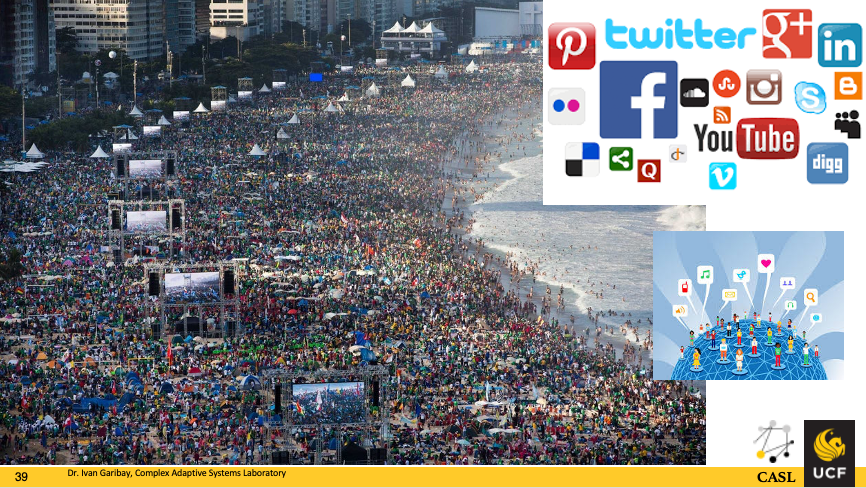
|
|
|||
Collaborators

|
William Rand
Associate Professor of Marketing North Carolina State University Department of Business Management [Website] |

|
Stephen M. Fiore
Professor University of Central Florida Department of Philosophy [Website] |
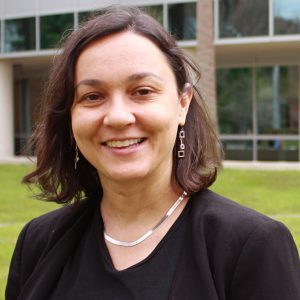
|
Gita Reese Sukthankar
Associate Professor University of Central Florida Department of Computer Science [Website] |
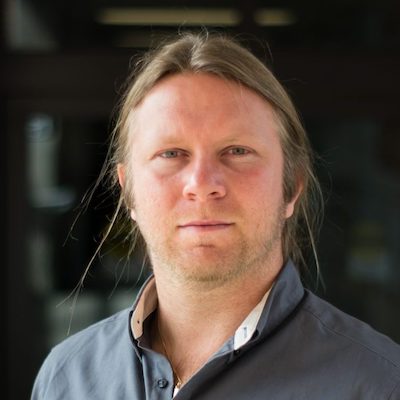
|
Alexander Mantzaris
Assistant Professor University of Central Florida Department of Statistics & Data Science [Website] |
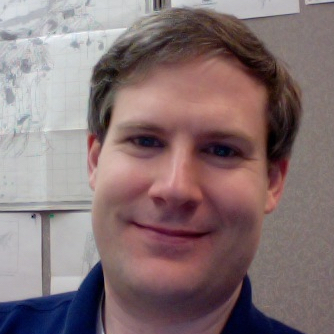
|
John T. Murphy
Research Associate Professor Northern Illinois University University of Chicago/Argon Nat. Lab. Department of Archaeology [Website] |
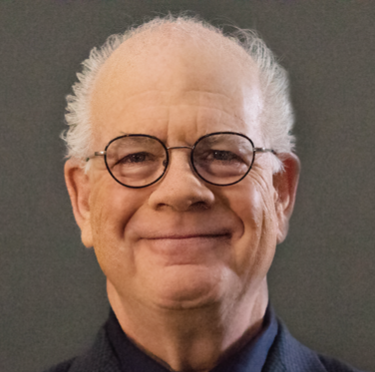
|
Joshua Epstein
Professor of Epidemiology New York University NYU School of Global Public Health [Website] |
Selected Related Publications
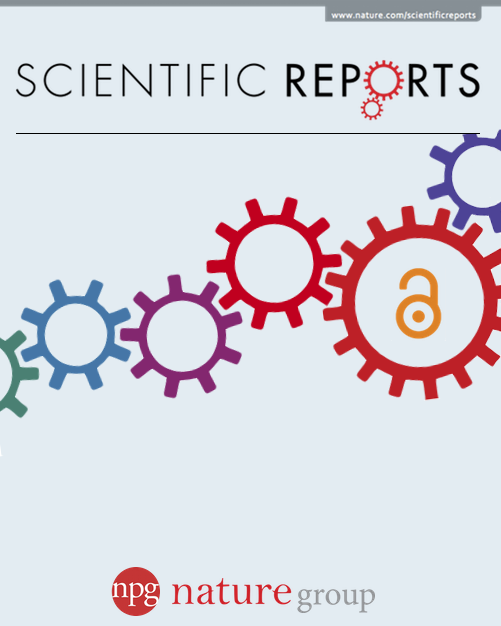
|
Inferring mechanisms of response prioritization on social media under information overload.
Chathika Gunaratne, William Rand, and Ivan Garibay 2021 Scientific Reports, 11, 1346. [Journal] |
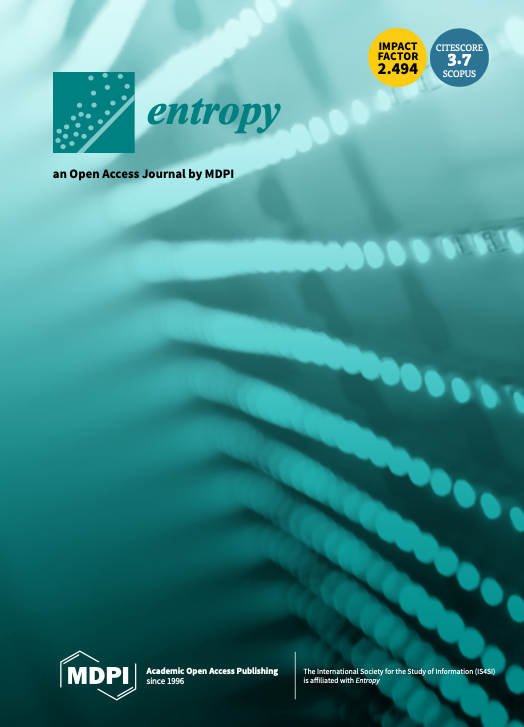
|
Influence Cascades: Entropy-Based Characterization of Behavioral Influence Patterns in Social Media.
Chathurani Senevirathna, Chathika Gunaratne, William Rand, Chathura Jayalath, and Ivan Garibay 2021 Entropy, 23(2), 160 [Journal] |

|
Evolutionary model discovery of causal factors behind the socio-agricultural behavior of the Ancestral Pueblo.
Gunaratne, C. and Garibay, I. 2020 PLoS ONE, 15(12): e0239922. [Journal] |
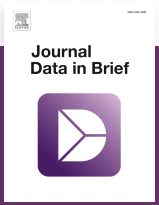
|
A stance data set on polarized conversations on Twitter about the efficacy of hydroxychloroquine as a treatment for COVID-19.
Ece C. Mutlu, Toktam Oghaz, Jasser Jasser, Ege Tutunculer, Amirarsalan Rajabi, Aida Tayebi, Ozlem Ozmen, and Ivan Garibay 2020 Data in Brief, 33, 106401 [Journal] |
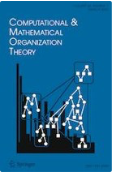
|
The effects of information overload on online conversation dynamics.
Gunaratne, C., Baral, N., Rand, W., Garibay, I., Jayalath, C., and Senevirathna, C. 2020 Computational and Mathematical Organization Theory, 26, 255-276. [Journal] |
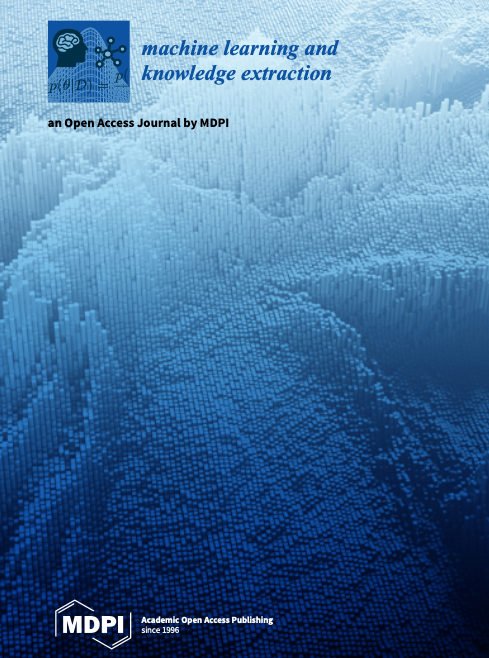
|
Review on Learning and Extracting Graph Features for Link Prediction.
Ece C. Mutlu, Toktam Oghaz, Amirarsalan Rajabi and Ivan Garibay 2020 Machine Learning and Knowledge Extraction, 2(4), 672-704. [Journal] |
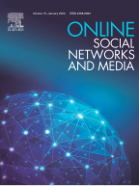
|
Modeling social coding dynamics with sampled historical data
Bidoki, N. H., Schiappa, M., Sukthankar, G., and Garibay, I. 2020 Online Social Networks and Media, 16:100070. [Journal] [Request Reprint] |

|
Polarization in social media assists influencers to become more influential: analysis and two inoculation strategies
Garibay, I., Mantzaris, A., Rajabi, A., and Taylor, C. E. 2019 Scientific Reports, 9:18592. [Journal] |
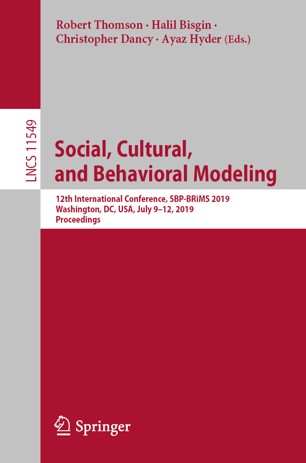
|
On countering disinformation with caution: Effective inoculation strategies and others that backfire into community hyper-polarization
Rajabi, A., Gunaratne, C., Mantzaris, A. V., and Garibay, I. 2020 In International Conference on Social Computing, Behavioral-Cultural Modeling and Prediction and Behavior Representation in Modeling and Simulation (SBP-BRiMS). Springer. (to appear) [Request Reprint] |
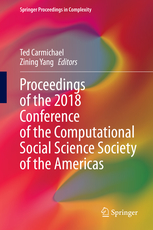
|
Resistance of communities of against conspiracies
Rajabi, A., Talebzadehhosseini, S., and Garibay, I. 2020 In Proceedings of the Conference of the Computational Social Science Society of the Americas (CSS2019), Santa Fe, NM. Springer. (to appear) [Request Reprint] |

|
Negative influence gradients lead to lowered attention span on social networks
Baral, N., Gunaratne, C., Jayalath, C., Rand, W., Senevirathna, C., and Garibay, I. 2020 In Proceedings of the Conference of the Computational Social Science Society of the Americas (CSS2019), Santa Fe, NM. Springer. (to appear) [Request Reprint] |

|
The degree-dependent threshold model: Towards a better understanding of opinion dynamics on online social networks Best Paper Award
Mutlu, E. and Garibay, I. 2020 In Proceedings of the Conference of the Computational Social Science Society of the Americas (CSS2019), Santa Fe, NM. Springer. Best paper award (to appear) [Request Reprint] |

|
Deep agent: A framework for information spread and evolution in social networks
Garibay, I., Oghaz, T., Yousefi, N., Mutlu, E., Schiappa, M., et al. 2020 In Proceedings of the Conference of the Computational Social Science Society of the Americas (CSS2019), Santa Fe, NM. Springer. (to appear) [Request Reprint] |
Press
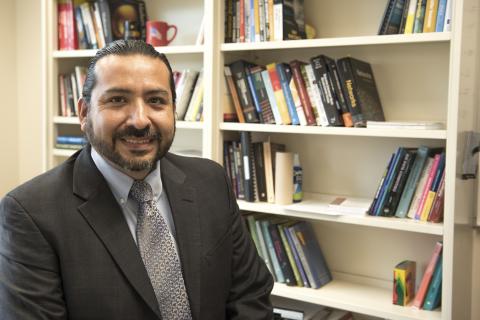
|
$6.2 Million DARPA Grant Awarded to Dr. Ivan Garibay
UCF IEMS [Article] |
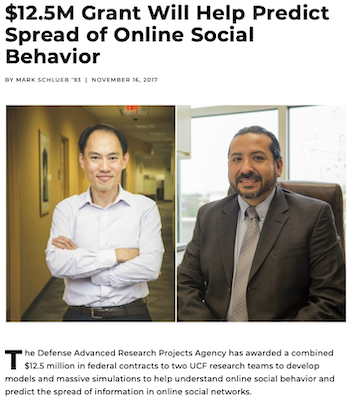
|
$12.5M Grant Will Help Predict Spread of Online Social Behavior
BY MARK SCHLUEB UCF Today [Article] |